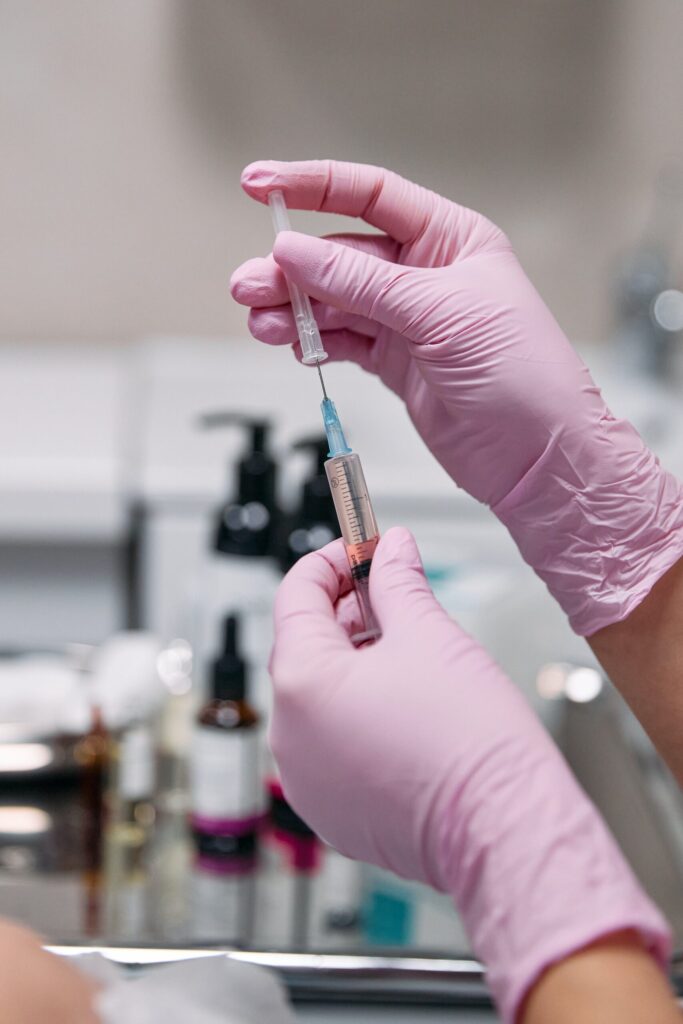How Quickly Does Medical Weight Loss Work?

Weight loss is difficult for many, and going through a professional, personalized medical weight loss is often a great way to achieve the results you desire. By learning more about medical weight loss and what realistic expectations are for treatment, you can determine if the process is right for you. An overview of medical weight […]
How Does Medical Weight Loss Work?

Looking into your medical weight loss treatment options? Continue reading to learn more about how medical weight loss works. When someone is overweight and finding it difficult to lose their extra pounds, it may be time to seek medical assistance. There are medical, professionals who focus their careers on helping individuals to lose weight in […]
Non-surgical Weight Loss Practices at Home

Non-surgical weight loss options are becoming more common for individuals interested in losing weight and achieving a healthier lifestyle. We can help you determine which non-surgical weight loss methods works best for your needs. Talk to your doctor if you have tried weight loss methods, such as medication. without desired results. You may be able […]
Non-surgical Weight Loss: What Are My Options?

Non-surgical weight loss is becoming a popular method. Losing excess weight and maintaining the resulting body has always been a goal for many people. While some find it easy to lose weight through surgery, others may not. Health conditions and age may prevent you from going under the knife to lose those pounds. You should […]
What You Need to Know About Fat Burning Injections

Individuals who want to reduce weight rapidly and efficiently may want to try fat burning injections, often called lipotropic injections. These contain vitamins and amino acids to aid in the body’s breakdown and metabolism of fat. Losing weight requires intense concentration and effort, and it may take many weeks, months, or even years before any […]
The Non-Surgical Weight Loss Process and Aftercare

People struggling with losing weight often wonder whether non-surgical weight loss methods will lead to the long-term success they want. The answer is that yes, it is possible for people who choose a non-surgical weight loss method to lose excess weight. Since non-surgical weight loss is a non-invasive method with no risk of post-surgery complications, […]
How B-12 Injections Can Complement Your Weight Loss Plan

A successful weight loss plan should incorporate multiple strategies that work for each individual. Additionally, the plan should be personalized according to one’s specific goals and treatment preferences. This review discusses the role B-12 injections can play in a weight loss plan. B-12 injections or a comprehensive weight loss plan Weight loss clinics often recommend […]
Are Fat Burning Injections Safe

Many weight loss patients are better able to achieve their ideal weight and health with the assistance of fat burning injections. In this review, we discuss the role that these injections play in a patient’s weight loss journey, the effectiveness of the injections, and how safe they are for patients. Reviewing the safety and efficacy […]
Medical Weight Loss Explained

If you have tried losing weight on your own and cannot seem to achieve or maintain the desired results, medical weight loss may be the right choice for you. This form of treatment can help you reach your goal weight safely, as you will be supervised by a weight loss clinician. This guide from a […]
Benefits of Non-surgical Weight Loss

Patients are often presented with two options when it comes to weight loss: surgical or non-surgical. Either may be viable, but ultimately, the best choice depends on your goals and preferences. Previous methods that you have tried. your genetic information, and other considerations may also factor into your weight loss decision. In most cases, non-surgical […]



